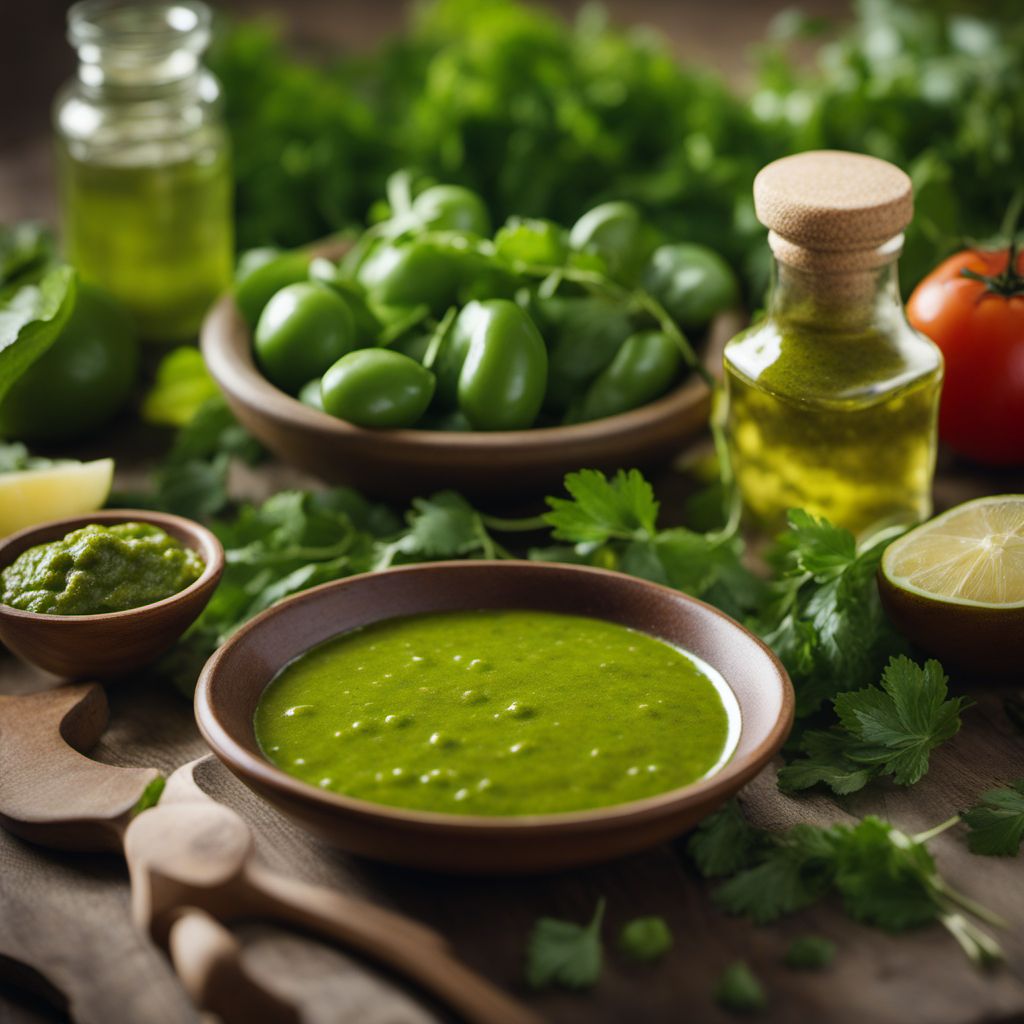
Ingredient
Herbs, vegetables and oil sauces
The Essence of Freshness and Flavor
Herbs, vegetables, and oil sauces encompass a wide range of ingredients, including basil, parsley, tomatoes, and olive oil. These condiments add depth and complexity to dishes, providing a burst of freshness and flavor. Whether used as a finishing touch or incorporated into the cooking process, they elevate the overall culinary experience.
Origins and history
The use of herbs, vegetables, and oil sauces can be traced back to ancient civilizations, where they were valued for their medicinal properties and culinary benefits. In Mediterranean cuisine, herbs like basil and parsley have been used for centuries to enhance the flavors of various dishes. Tomatoes, a staple vegetable in many cuisines, originated in South America and have become a fundamental ingredient in dishes worldwide. Olive oil, often referred to as liquid gold, has been a prized ingredient in Mediterranean cultures for thousands of years.
Nutritional information
Herbs, vegetables, and oil sauces are rich in vitamins, minerals, and antioxidants. They provide essential nutrients and contribute to a healthy diet. For example, basil is a good source of vitamin K and manganese, while tomatoes are rich in vitamin C and lycopene. Olive oil is known for its heart-healthy monounsaturated fats and antioxidant properties.
Allergens
May cause allergic reactions in individuals with specific allergies to herbs, vegetables, or oils. It is advisable to exercise caution and consult with a healthcare professional if necessary.
How to select
When selecting herbs, look for fresh leaves that are vibrant in color and free from any signs of wilting or discoloration. Vegetables should be firm, with no soft spots or blemishes. For oil sauces, opt for high-quality extra virgin olive oil that is stored in a dark bottle to protect it from light. It is important to choose reputable brands and check for any signs of rancidity or off-flavors.
Storage recommendations
Herbs should be stored properly to maintain their freshness and flavor. They can be stored in the refrigerator, wrapped in a damp paper towel and placed in a plastic bag. Vegetables should be stored in the refrigerator's crisper drawer, preferably in a perforated plastic bag to maintain humidity. Oil sauces, such as olive oil-based dressings or pesto, should be stored in airtight containers in the refrigerator and consumed within a few days.
How to produce
Herbs, vegetables, and some oil sauces can be easily grown by amateurs in home gardens or containers. They require adequate sunlight, water, and well-drained soil. Some herbs, like basil and parsley, can also be grown indoors on a sunny windowsill. Growing your own herbs and vegetables allows for a fresh and readily available supply.
Preparation tips
Herbs can be used in various ways, such as adding them to salads, soups, or sauces. They can also be used as a garnish or infused into oils and vinegars. Vegetables can be used in salads, stir-fries, or roasted dishes. Oil sauces, like pesto or chimichurri, can be used as a condiment or marinade. It is important to follow specific recipes and adjust the quantities according to personal taste preferences.
Culinary uses
Herbs, vegetables, and oil sauces are versatile ingredients that are used in a wide range of culinary applications. Basil is a key component of Italian cuisine, used in dishes like Caprese salad and pesto. Parsley is a popular herb in Mediterranean and Middle Eastern cuisines, often used as a garnish or ingredient in tabbouleh. Tomatoes are a staple in many cuisines, from fresh tomato salads to tomato-based sauces. Olive oil is a fundamental ingredient in Mediterranean cooking, used for dressings, marinades, and sautéing.
Availability
Herbs, vegetables, and oil sauces are commonly available in grocery stores, supermarkets, and farmers markets. The availability may vary depending on the region and local culinary preferences.
More ingredients from this category

Curry sauce
The Aromatic Blend of Spices
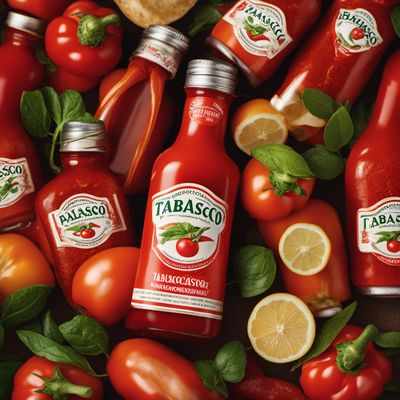
Tabasco sauce
"Fiery Elixir: Unleashing the Bold Flavors of Tabasco Sauce"
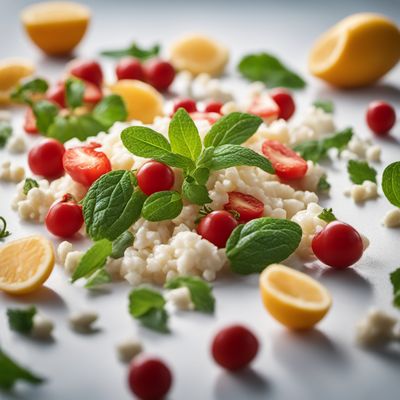
Tzatziki
Cool and Creamy: Discovering the Refreshing Delights of Tzatziki
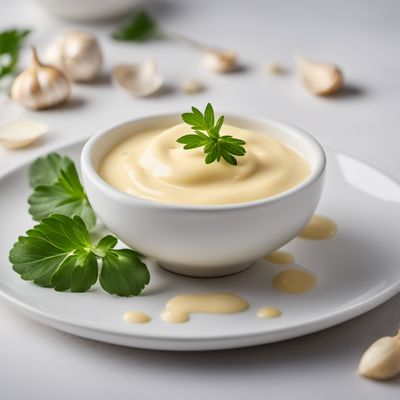
Aioli or garlic sauce
The Creamy Delight: Aioli or Garlic Sauce
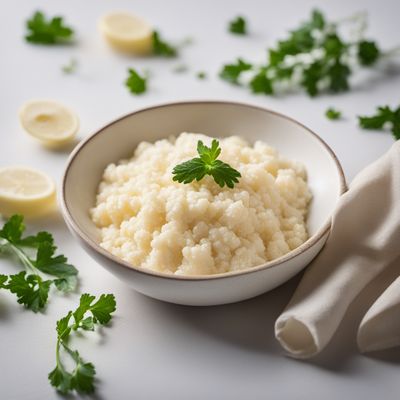
Horseradish sauce
The Fiery Elixir: Unleashing the Heat of Horseradish
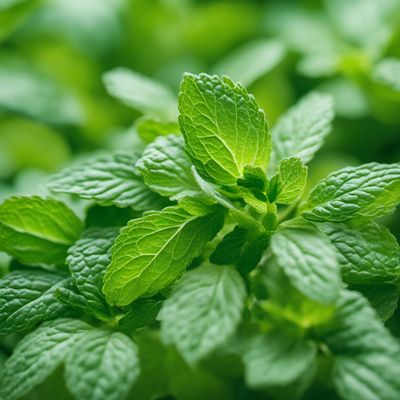
Mint sauce
"Refreshing Twist: Exploring the Delights of Mint Sauce"
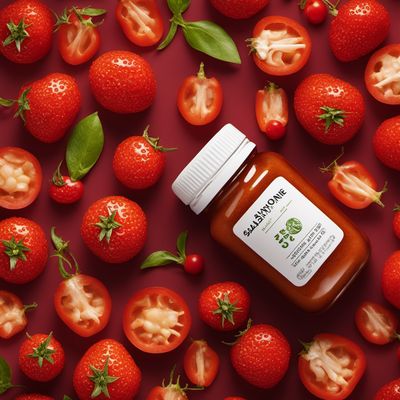
Salsa
The Zesty Dip
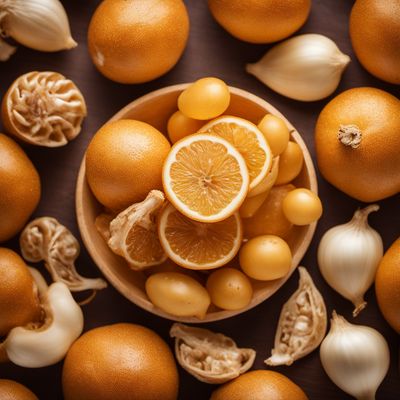
Pesto
The Green Elixir
Recipes using Herbs, vegetables and oil sauces » Browse all
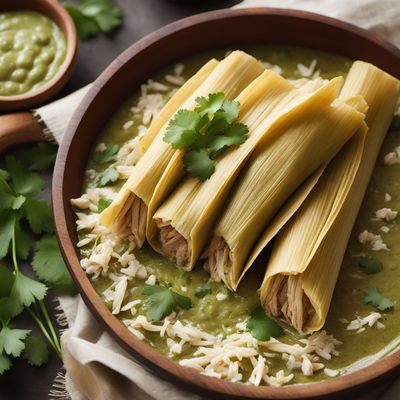
Mexican-Style Tamales
Savory Mexican Tamales: A Delightful Masa Filled with Authentic Flavors
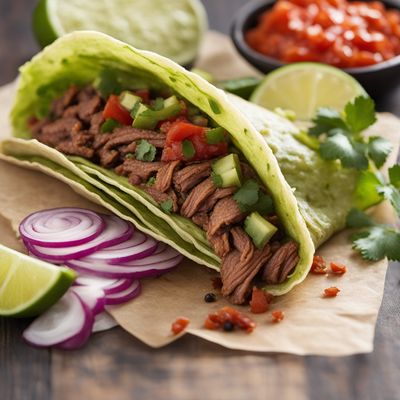
Carne Asada Burrito
Sizzling Steak Burrito: A Flavorful Mexican Delight

Enchiladas Potosinas with Tangy Salsa Verde
Savory Stuffed Enchiladas with a Zesty Green Sauce
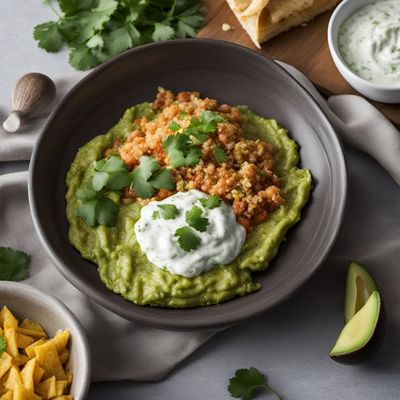
Huevos Divorciados with a Twist
Mexican Sunrise: Huevos Divorciados Reinvented

New Mexican Gumbo
Spicy and Flavorful Green Chile Gumbo
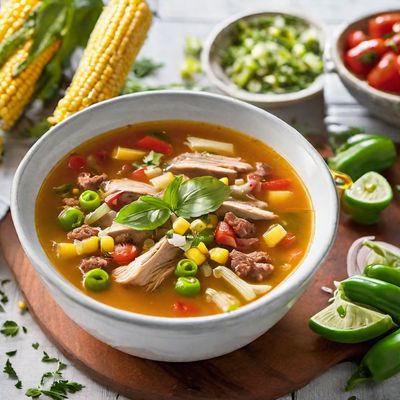
New Mexican Chicken Soup
Spicy and Flavorful New Mexican Chicken Soup
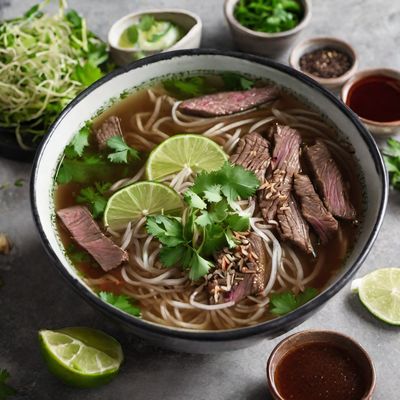
New Mexican Style Pho
Spicy and Savory Green Chile Pho
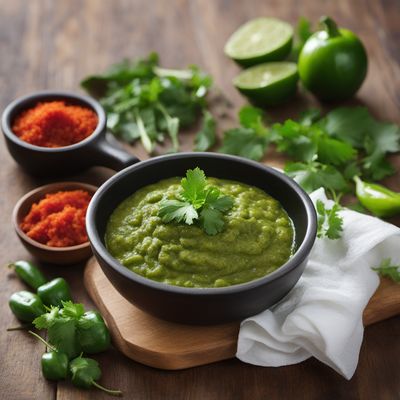
Peruvian Tacu-Tacu with Aji Verde Sauce
Savory Peruvian Rice and Bean Pancakes with Spicy Green Sauce

Kung Pao Chicken
Indo-style Spicy Chicken Stir-Fry

New Mexican Green Chile Parmigiana
Spicy and Cheesy Green Chile Parmigiana with a New Mexican Twist

New Mexican Cordon Bleu
Spicy Stuffed Chicken with Green Chile and Cheese

New Mexican Green Chile Risotto
Spicy and Creamy Green Chile Risotto with a New Mexican Twist